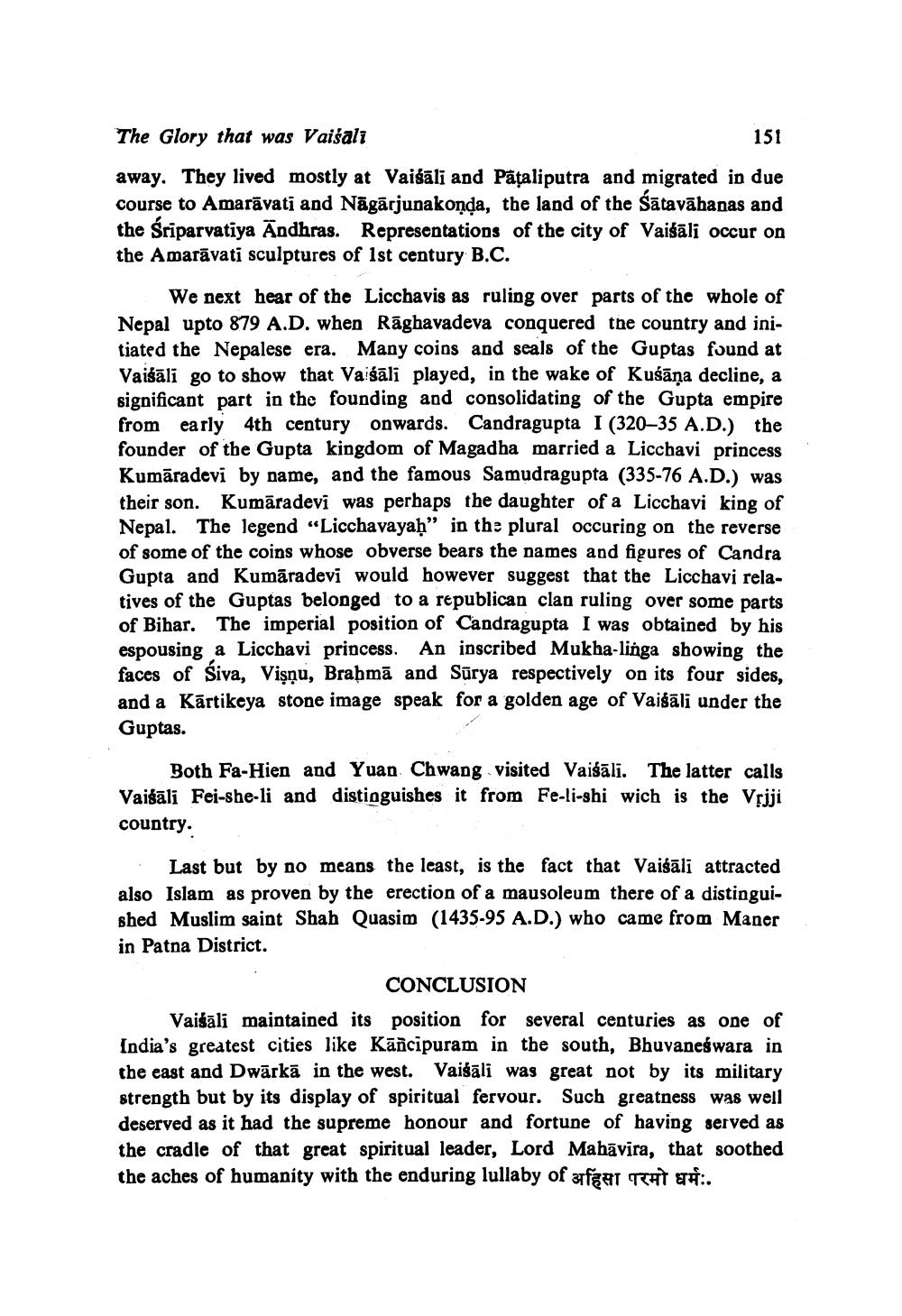________________ The Glory that was Vaisali 151 away. They lived mostly at Vaisali and Pataliputra and migrated in due course to Amaravati and Nagarjunakonda, the land of the Satavabanas apd the Sriparvatiya Andhras. Representations of the city of Vaisali occur on the Amaravati sculptures of 1st century B.C. We next hear of the Licchavis as ruling over parts of the whole of Nepal upto 879 A.D. when Raghavadeva conquered the country and initiated the Nepalese era. Many coios and seals of the Guptas found at Vaisali go to show that Vaisali played, in the wake of Kusana decline, a significant part in the founding and consolidating of the Gupta empire from early 4th century onwards. Candragupta I (320-35 A.D.) the founder of the Gupta kingdom of Magadha married a Liccbavi princess Kumaradevi by name, and the famous Samudragupta (335-76 A.D.) was their son. Kumaradevi was perhaps the daughter of a Licchavi king of Nepal. The legend "Licchavayah" in the plural occuring on the reverse of some of the coins whose obverse bears the names and figures of Candra Gupta and Kumaradevi would however suggest that the Licchavi relatives of the Guptas belonged to a republican clan ruling over some parts of Bihar. The imperial position of Candragupta I was obtained by his espousing a Liccbavi princess. An inscribed Mukha-linga showing the faces of siva, Visnu, Brahma and Surya respectively on its four sides, and a Kartikeya stone image speak for a golden age of Vaigali under the Guptas. Both Fa-Hien and Yuan Chwang visited Vaisali. The latter calls Vaigali Fei-she-li and distinguishes it from Fe-li-shi wich is the Vriji country Last but by no means the least, is the fact that Vaisali attracted also Islam as proven by the erection of a mausoleum there of a distinguished Muslim saint Shah Quasim (1435-95 A.D.) who came from Maner in Patna District. CONCLUSION Vaisali maintained its position for several centuries as one of India's greatest cities like Kancipuram in the south, Bhuvaneswara in the east and Dwarka in the west. Vaisali was great not by its military strength but by its display of spiritual fervour. Such greatness was well deserved as it had the supreme honour and fortune of having served as the cradle of that great spiritual leader, Lord Mahavira, that soothed the aches of humanity with the enduring lullaby of अहिंसा परमो धर्मः.




